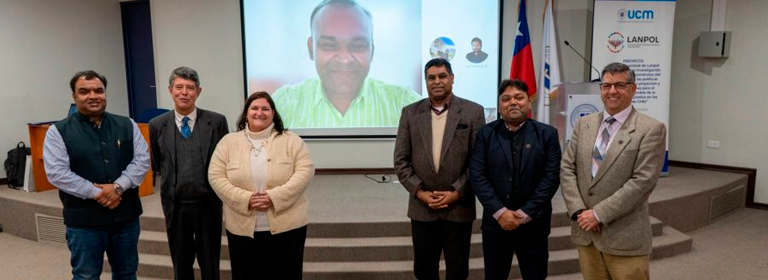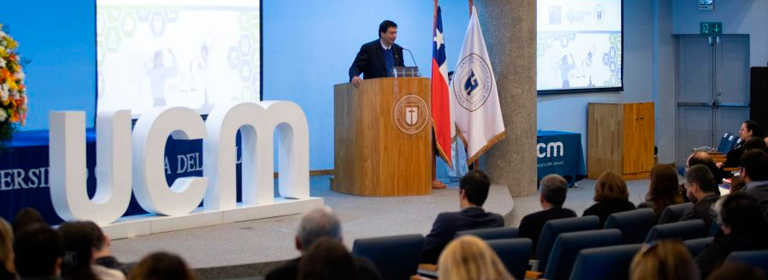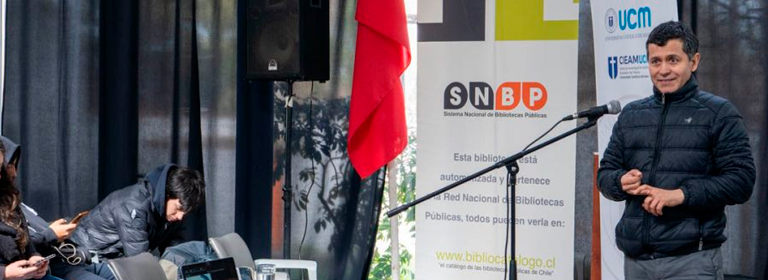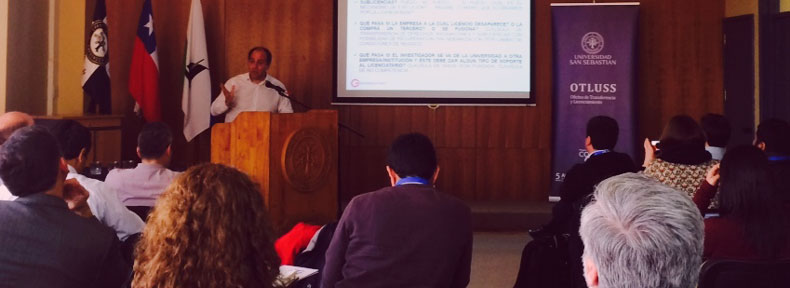The Universidad Católica del Maule formed an alliance with academic institutions in Brazil, Argentina and India to conduct joint research on multilingual communities.
 It is hard to believe, but Chile lacks an official language. Although the Constitution and this note itself are written in Spanish, the so-called “Castilian” is more of a de facto language.
It is hard to believe, but Chile lacks an official language. Although the Constitution and this note itself are written in Spanish, the so-called “Castilian” is more of a de facto language.
“In Chile there is no normative framework that regulates Spanish, English or indigenous languages. A first step would be to formulate a policy document to regulate these languages and then see how multilingualism can work and relate it to the issue of immigration, for example,” said the Director of Research at the Universidad Católica del Maule, Dr. Ranjeeva Ranjan, who heads a project financed by the Fomento a la Vinculación Internacional (FOVI) program in this field.
The initiative seeks to stimulate collaborative research on multilingualism and language policy in the Chilean context.
“We created what would be the first network to work on this topic, at the national level. So far we have some scientific knowledge, but in an isolated way. There is no unification of everything,” stressed the doctor of philosophy.
In addition to UCM, the so-called LanPol (Language Policy) Network is made up of academics from UFRO, Universidad del Bío-Bío, Universidad Federal de Santa Catarina of Brazil, Universidad Nacional de Mar del Plata of Argentina, Jawaharlal Nehru University and Woxsen University of India, according to the minutes of formation signed at the San Miguel campus on June 11.
“There is something similar which is the UNESCO Atlas of the World’s Languages, where each member country has a commission that incorporates data such as the number of speakers of the language, the degree of use between generations, whether the majority of the territorial structure of the language is rural or urban, whether the speakers are involved purely with an economic aspect, say agriculture, or whether they are diversified, the degree of presence in the health system and whether the speakers can go to court in their languages,” said Dr. Gilvan Müller de Oliveira, associate professor at the Federal University of Santa Catarina and foreign researcher for the FOVI project.
“Chile recently accepted Convention 169 of the International Labor Organization, which obliges the State to respect the cultural rights of native peoples. When Brazil incorporated this protocol, it created three new articles in the Constitution that have supported, for example, indigenous school education,” he added.
Civilization and Language
Dr. Mariana Lazzaro-Salazar, co-investigator of the initiative and academic of the Maule campus, highlighted the importance of “recognizing the multiplicity of languages spoken in the national territory, (since) it will serve to promote and reinforce cultural and identity aspects of the diverse speech communities that make up Chilean society”.
Along the same lines, Dr. Gaurav Kumar of Jawaharlal Nehru University underscored the transcendence of a language, comparing it to a civilization. “A civilization dies with the death of a language,” he said.
The international congress, which also included activities in Chillán and Temuco, was also attended by research associate Dr. Andrew Philominraj.













